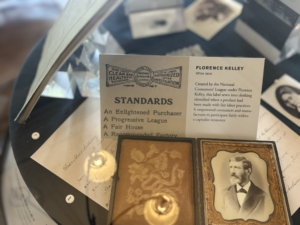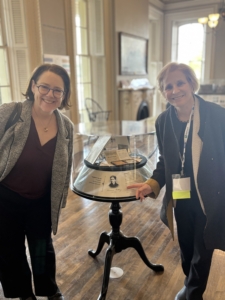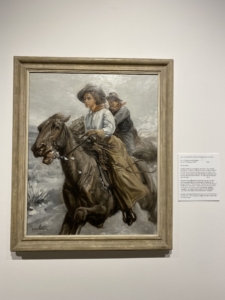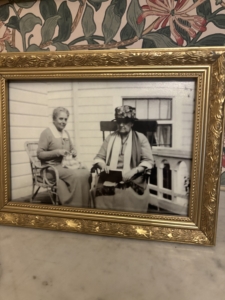Media Contact: Lisa McDonald, Vice President of Communications, 202-207-2829
The National Consumers League Launches a New Mobilization, “The Weight Truth,” to Combat the Infodemic of Disinformation Surrounding GLP-1 Drugs; New White Paper Identifies Nine Priorities for Action
Washington, DC – With mounting evidence that an infodemic of disinformation about GLP-1 weight loss medicines has become America’s second obesity crisis, the National Consumers League (NCL) – a leading non-profit fighting fraud in the marketplace – today released a white paper as a blueprint for policy changes to combat the flood of false information circulating online about GLP-1 products and launched an ambitious national anti-disinformation effort called the Weight Truth with the online hub, www.weight-truth.org, to drive action.
“Despite the promise of GLP-1 drugs to help Americans with obesity achieve a significant weight loss and improve their health status, an escalating ‘infodemic’ of disinformation online is causing consumers to opt for ‘cheap, easy and doctor approved’ products that may cause harm or could be fakes, “said Sally Greenberg, NCL’s CEO. “Infodemics are dangerous, which is why NCL is raising awareness of this serious health hazard and calling for a national mobilization to arm people with the facts about GLP-1s and to protect the public through legal and regulatory efforts.”
Disinformation Is Rampant
Coinciding with the end of a national shortage of branded GLP-1 medicines and the withdrawal of compounded versions from the market, the Weight Truth will help the public decode misinformation about these weight loss medicines at a time when researchers warn of an “alarming” amount of disinformation online that is sowing distrust in health institutions and encouraging consumers to opt for products promoted as “doctor approved” that FDA warns “can be risky for patients.” Consumers are also subjected to a flood of false claims about supposed new forms of GLP-1s, such as patches, shakes, gummies, drops, and versions with untested additives, without evidence that these products even work. Documenting the reach of this false information, one recent study estimated a 1200 percent increase in “violative or problematic” GLP-1-related ads between 2022 and 2024 (the time when FDA-approved GLP-1 drugs were in shortage).
New Poll Reveals the Consequences of Disinformation
Yet, the most persuasive data comes from a new NCL-commissioned survey of 1,500 women ages 18-55 fielded by Dynata, LLC in March 2025, which finds that 85 percent of women with obesity believe the false claims made in online ads. When respondents were shown a fictional ad for a compounded GLP-1 drug and were asked what the term “doctor approved” meant to them, 55 percent said the drug was “endorsed by medical professionals,” and 31 percent said the drug was “safe to use.” Reinforcing these viewpoints, 71 percent of the women polled said they believe compounded GLP-1s are only on the market if they were tested and proven safe, and more than half (53 percent) think these medications received FDA approval. Additionally, 49 percent think compounded versions have the same active ingredients, and 41 percent say the doses are the same as the branded drug. None of these perceptions are accurate.
“The Weight Truth is an essential tool that will help thousands of consumers navigate a weight loss market rife with bad actors promoting non-FDA-approved GLP-1s. People living with obesity deserve accurate information and access to safe, affordable, and effective care that allows them to succeed during their treatment journey,” said Dr. Angela Fitch, past president of the Obesity Medicine Association and Chief Medical Officer of knownwell.
Disinformation Is Dangerous and Leads to Serious Health Consequences
Underscoring why these findings of the new survey matter, NCL’s white paper – Compounding, Counterfeits, and Confusion: Confronting the Infodemic of Disinformation on Obesity Treatments – documents what happens when disinformation causes consumers to opt for medicines that the FDA does not review for safety, effectiveness, or quality before they are marketed. Regarding compounded GLP-1 drugs, patient safety advocates point to exemptions from standard product labeling requirements, which leave consumers without information on side effects, contraindications, and possible adverse effects and opens the door for marketers to tout the benefits of compounded GLP-1s without disclosing the risks. Moreover, the FDA warns that not undergoing a pre-market review increases the potential that drugs will have quality issues, such as contamination, sub- or super-potency, or incorrect dosing. Beyond compounded GLP-1s, patient safety advocates and state attorneys general point to drug counterfeiters and bad actors who put consumers at risk for harm from exposure to contaminated ingredients, undisclosed chemical agents, and dosing errors by illegally selling the active pharmaceutical ingredient (API) in GLP-1s directly to consumers online with dosing instructions.
“Disinformation about GLP-1 medications puts patient safety at risk, and The Weight Truth initiative is urgently needed to fight back. Every person affected by obesity deserves access to trustworthy, evidence-based information about their care options,” says Joe Nadglowski, President and CEO of the Obesity Action Coalition (OAC). “No one should be forced to navigate a sea of confusing or misleading claims that jeopardize their health and well-being.”
Documenting the potential health consequences from dosing errors and exposure to the wrong ingredients,
FDA has received over 775 adverse event reports as of February 28, 2025, which includes reports of 17 deaths and over 100 hospitalizations. Moreover, poison control centers report nearly a 1,500 percent increase in calls since 2019 related to overdosing or side effects of injectable GLP-1 usage. Importantly, because most compounding pharmacies are not required to report adverse events from compounding drugs, the FDA indicates it is “likely that adverse events from compounded versions of GLP-1 drugs are underreported.
A Blueprint for National Actions
Because infodemics are dangerous, NCL’s white paper calls for collective action to combat the epidemic of false and misleading claims about GLP-1 weight loss drugs and policy changes to protect consumers during national drug shortages where there is a large mass market for these drugs. Toward this end, NCL’s blueprint identifies nine
priorities for action:
- Make Combating Infodemics a National Priority
The growing threat of misinformation requires a unified national response, and NCL’s anti-disinformation initiative, the Weight Truth, can be the model for educating consumers and being a platform for clinicians, advocates, and policymakers to advance policy changes to protect consumers.
- Increase Coverage and Affordability of FDA-Approved GLP-1 Weight Loss Drugs
Because increasing coverage of FDA-approved GLP-1 drugs is the best way to put a damper on an exploitative market for these products, the National Consumers League and many advocates are working to secure coverage through Medicare and state Medicaid programs and private insurers in order to help reduce patients’ out-of-pocket costs.
- Enforce Existing Drug Advertising Rules
During the national shortage of GLP-1 drugs, online advertising proved effective in convincing consumers that compounded versions were essentially generic versions of branded drugs. Thus, the FDA can help stem the infodemic by monitoring content online and enforcing existing prescription drug advertising regulations.
- Explore a New Role for the Federal Trade Commission
The Federal Trade Commission (FTC) has a strong regulatory framework to address deceptive marketing and ensure that advertising claims are truthful and substantiated, including health claims. Since FTC is taking aim at food companies that are developing “GLP-1 friendly” products, there is an opening for the FTC to take enforcement actions against companies that make false or misleading claims about GLP-1 drugs and to assert that supplements, gummies, patches, and related products are not forms of GLP-1s.
- Increase Pharmacovigilance of Online Pharmacy Websites
During the national shortage of GLP-1 drugs, illegal online pharmacies were actively selling semaglutide without
a prescription and shipping unregistered and falsified products. These pharmacies pose a major threat and should be a focus for enforcement efforts by the FDA and state boards of pharmacy.
- Intensify Federal and State Efforts to Protect Consumers from Counterfeiters
Counterfeit products are entering the U.S. supply chain. As identified by the FDA, the Federal Bureau of Investigation, and many state Attorneys General, key areas for enforcement are sellers using online app-based platforms to supply consumers with GLP-1 products containing insulin or “animal grade” ingredients and illegally selling the active pharmaceutical ingredient (API) in GLP-1s directly to consumers.
- Implement Labeling Rules for Compounders
Not having labeling information on side effects, contraindications, and possible adverse events leads patients to underestimate the risks of compounded drugs and potential dosing errors. Given the millions of consumers who may take compounded drugs if/when there is another large and prolonged national drug shortage, the same labeling rules should apply to both branded and compounded copycat drugs during a shortage.
- Require Compounders to Submit Adverse Reactions Reports to FDA
Adverse event reports are often the way the FDA learns of safety issues with compounded drugs, which is why the agency should have accurate information on safety issues during a national drug shortage.
- Require Compounders to Disclose Information on the Composition and Distribution of Compounded Drugs
Currently, compounders are not required to disclose the source of their Active Product Ingredient (API), the main ingredient in making compounded GLP-1s, nor report the number of doses sold. Having access to this information during a national shortage will improve surveillance efforts and build trust in the integrity of compounded products.
“Everyone requires accurate information to make health care decisions that are best for ourselves and our families, and we rely on regulators to protect us from misleading claims about medical products,” said Michael C. Barnes, Counsel to Aimed Alliance. “The FDA, state boards of pharmacy, and state attorneys general can and should take enforcement action against suppliers of unapproved drugs and deceptive advertisers. Aimed Alliance supports NCL and federal and state health and safety officials’ efforts to protect consumers in the health care marketplace.”
About the Weight Truth Initiative
To combat false information circulating online about GLP-1 products, NCL commissioned new opinion research and consulted with leading obesity specialists, disinformation authorities, law enforcement officials, and regulatory experts to assess the infodemic, understand how the unregulated marketplace for GLP-1s operates, and determine what can be done to protect the public through education and policy change. Based on this assessment, NCL developed the Weigh Truth initiative, including an online hub – www.weight-truth.org – to arm people with the facts about GLP-1s and advance policies to prevent exploitative markets from operating during national drug shortages when there is a large mass market for compounded drugs.
###
About NCL
The National Consumers League, founded in 1899, is America’s pioneer consumer organization. Our mission is to protect and promote social and economic justice for consumers and workers in the United States and abroad. For more information, visit www.nclnet.org.




























